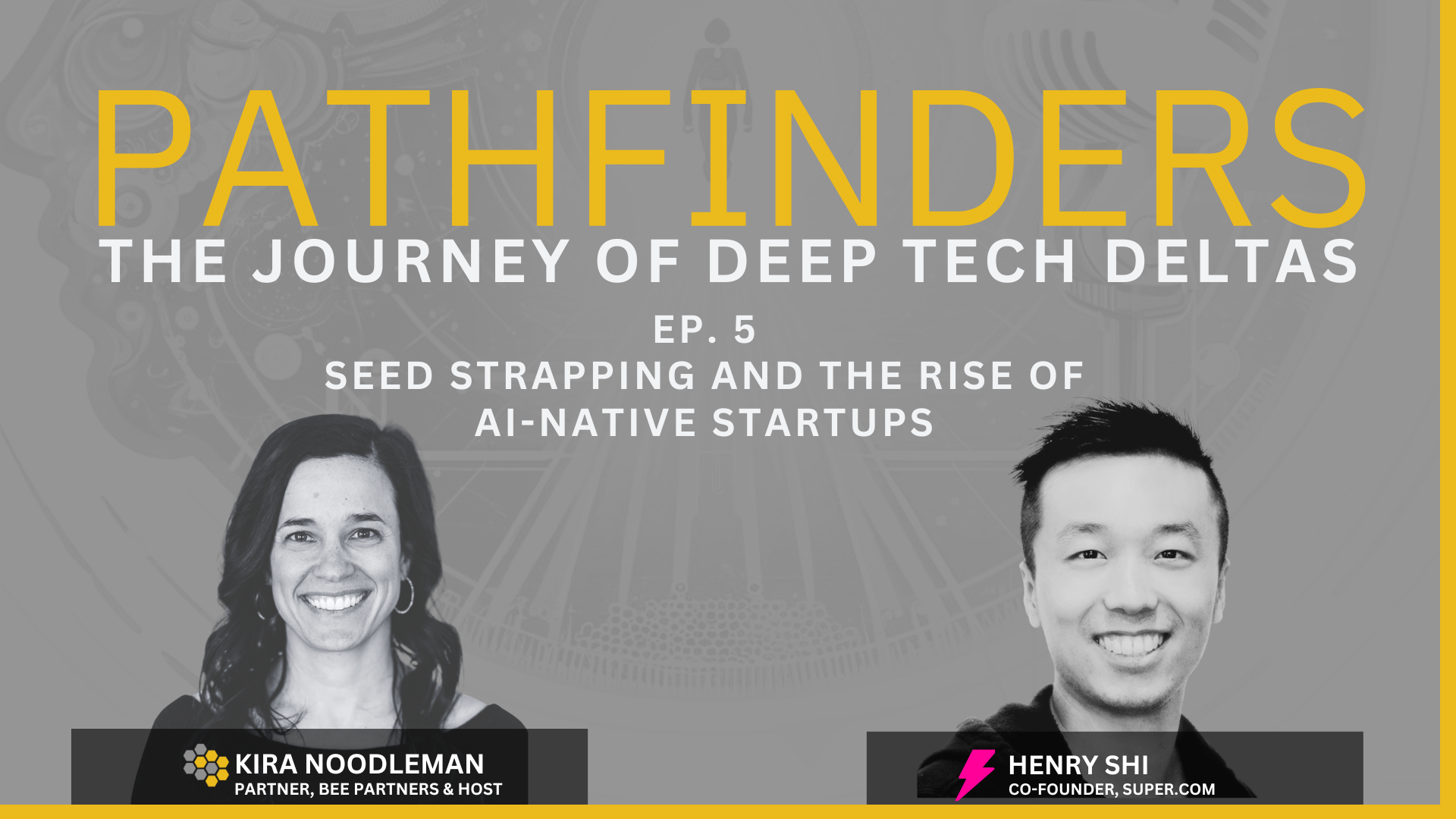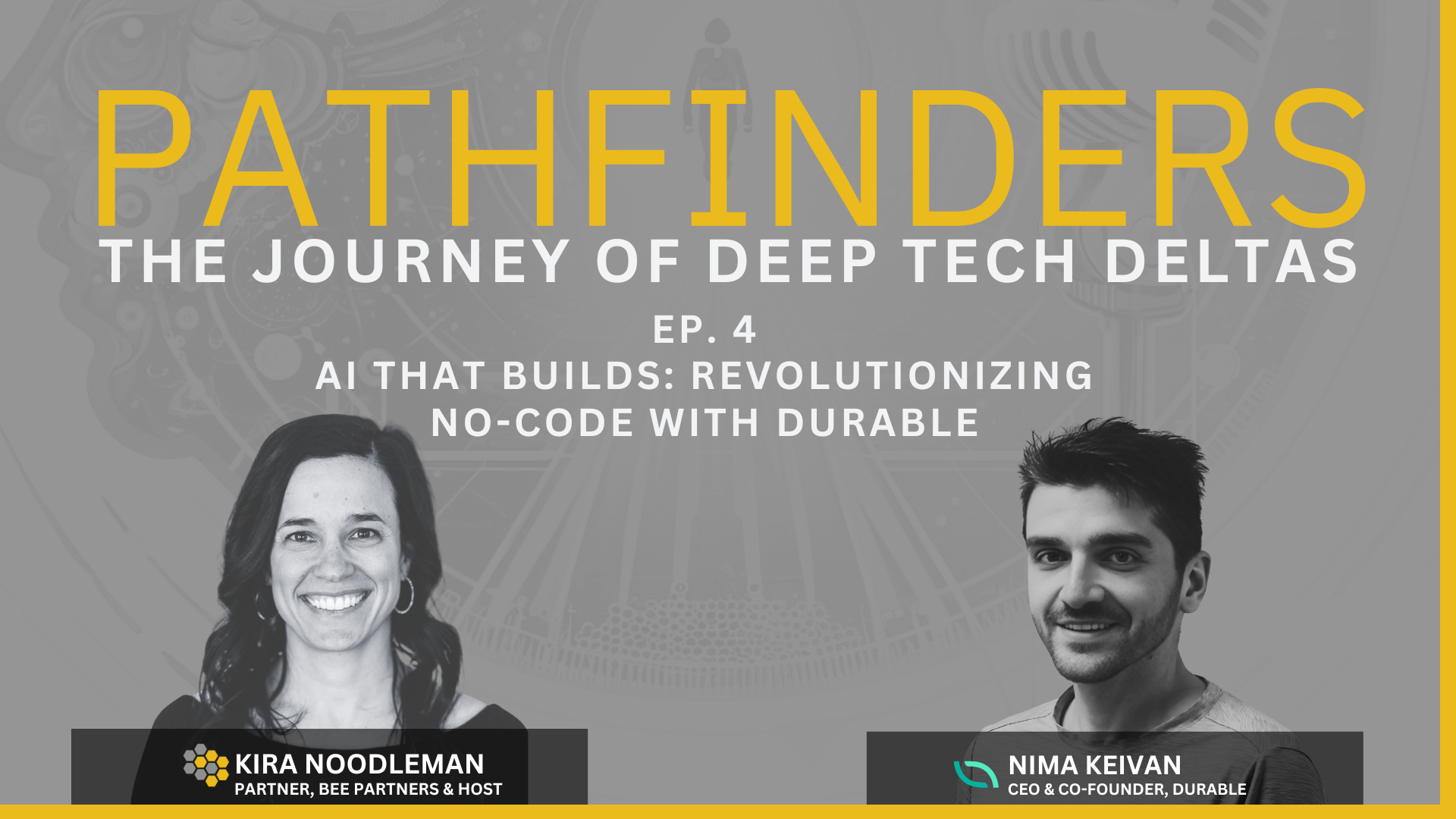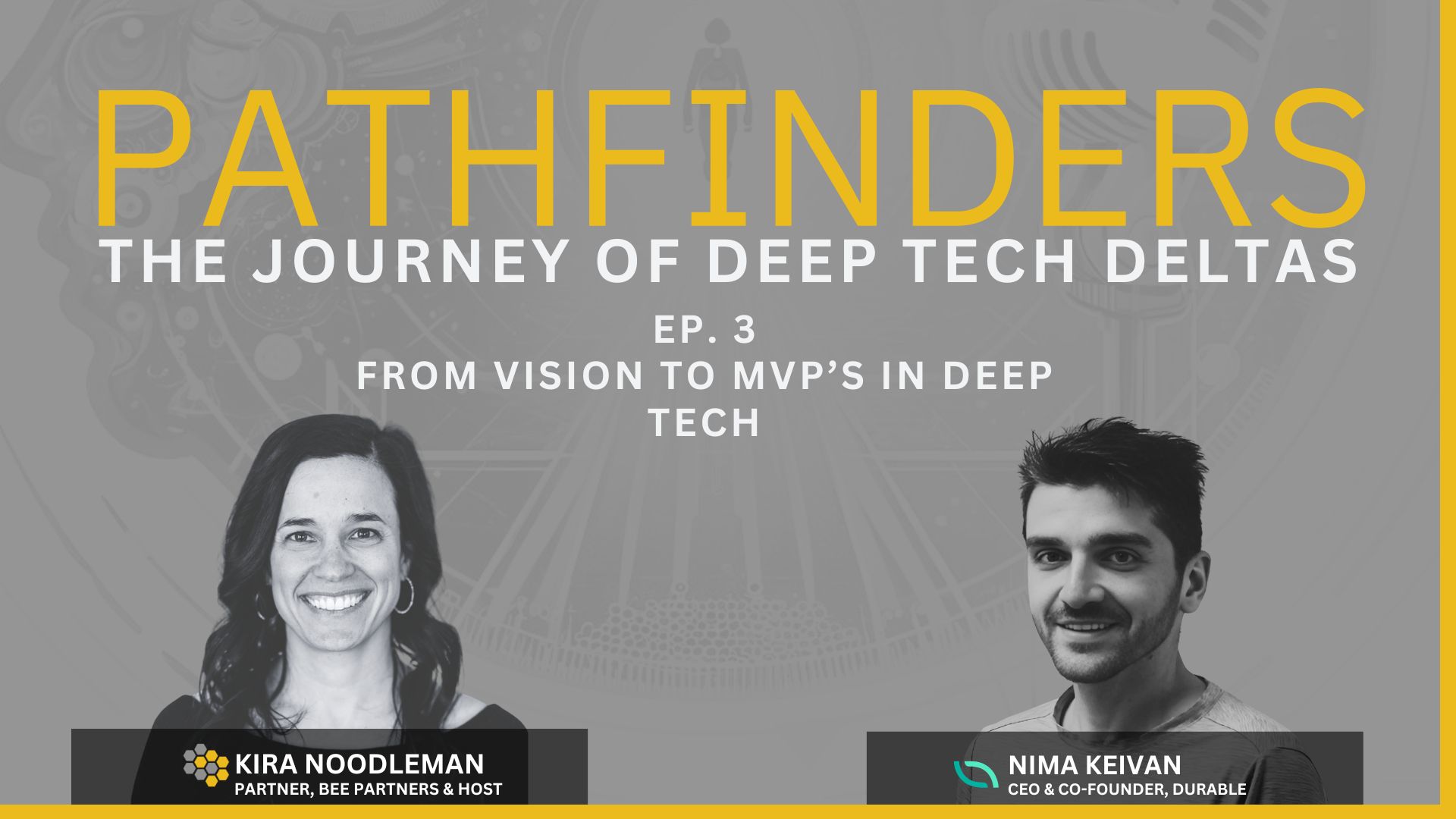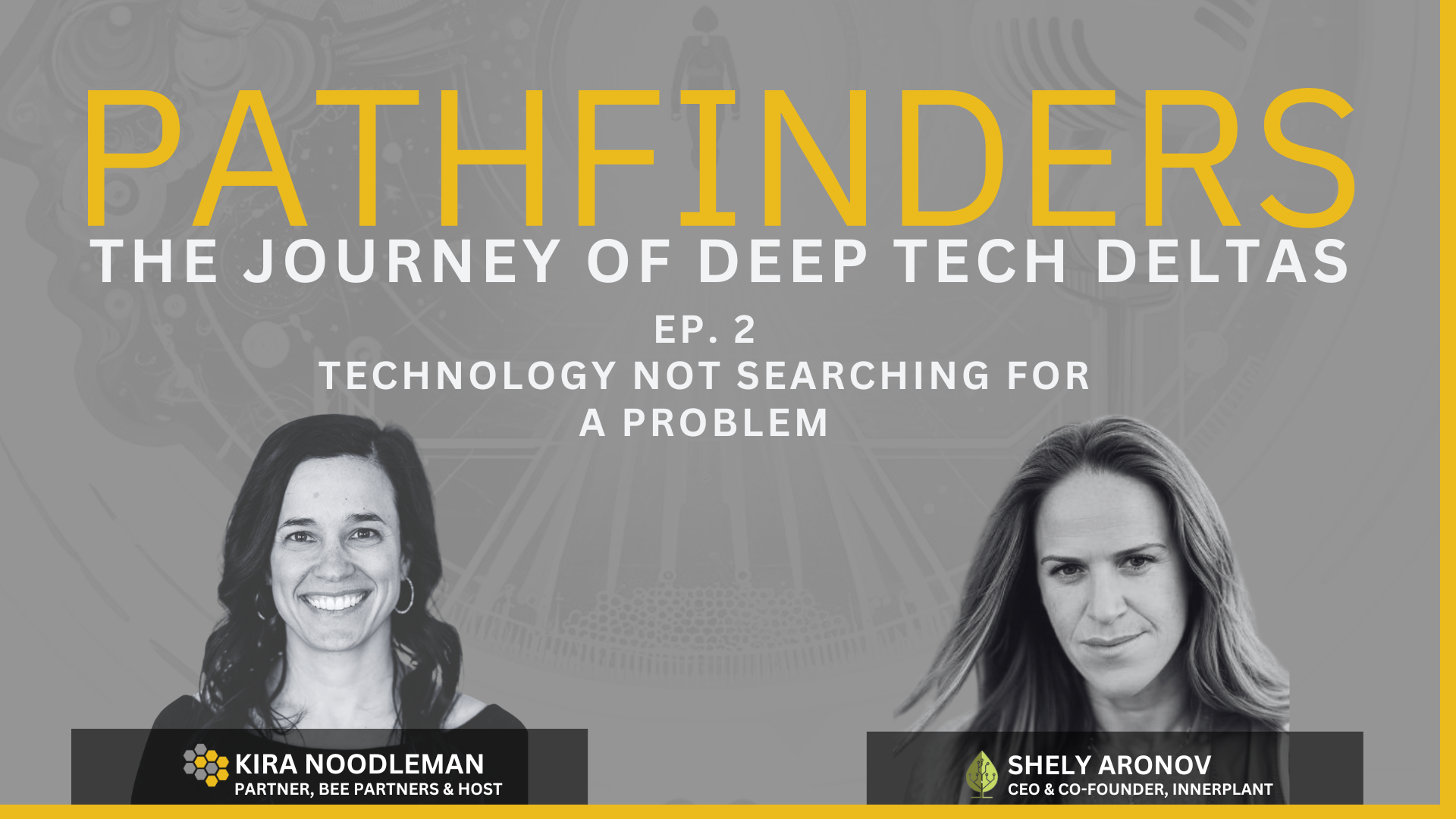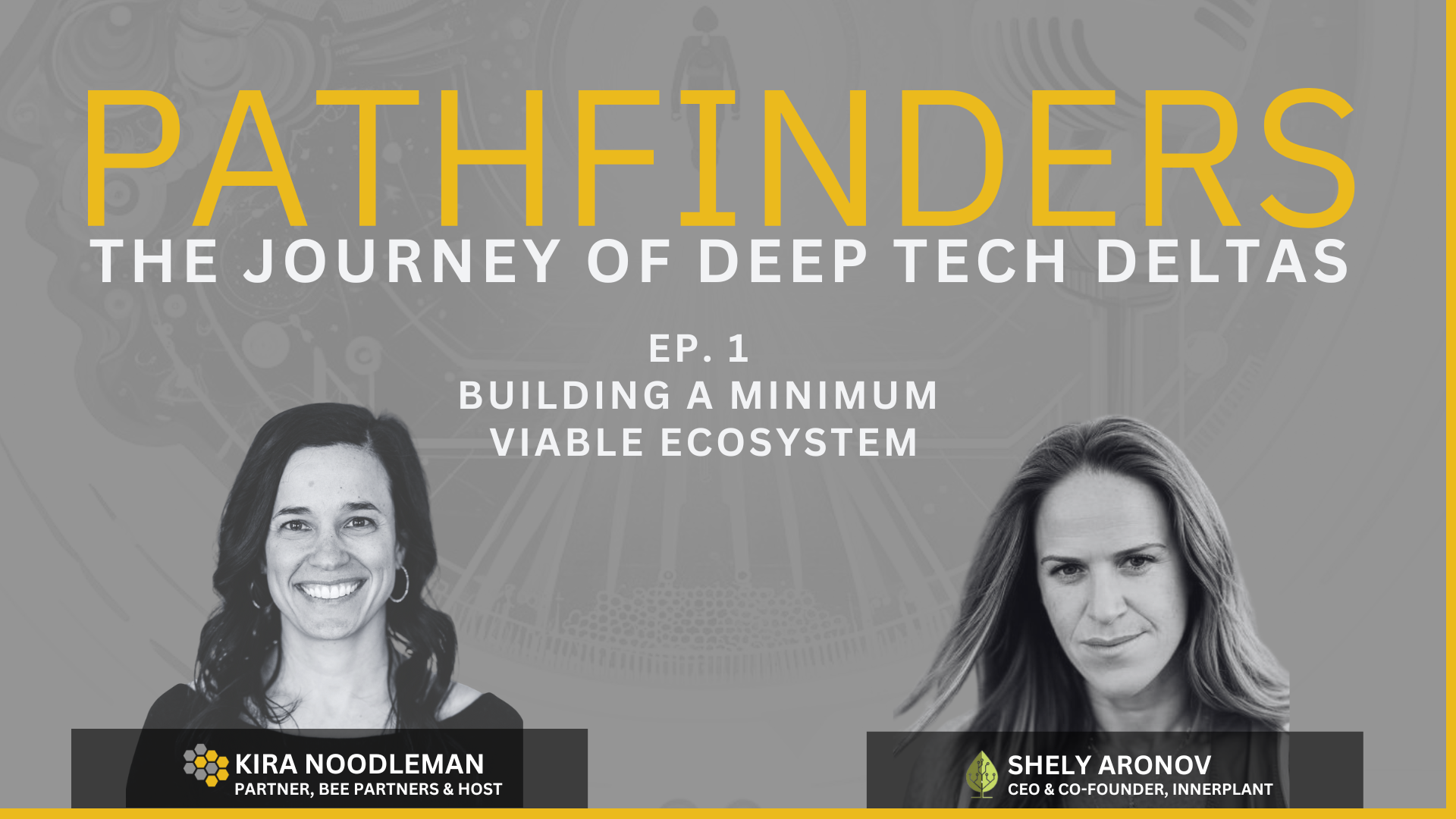Pathfinders Series
Get ready to explore the dynamic world of deep tech founders in venture capital. While deep tech represents only 10% of venture investing, groundbreaking innovation has been emerging for decades. Hosted by Kira Noodleman, this monthly podcast series gives unprecedented access to deep tech founders' advice on fundraising, building a team, product-market fit, go-to-market strategy, and more. Listen to Kira's introduction video and then read on to learn a bit more about the genesis of this podcast!
Deep Tech Deltas
Building in deep tech often presents unique challenges due to the inherent nature of the industry... but how so?
Complex Technology
Deep tech startups often operate at the cutting edge of scientific and engineering research. Unlike traditional tech firms, they deal with complex technologies like quantum computing, biotechnology, or advanced materials. The intricacies of these fields demand extensive R&D, specialized knowledge, and rigorous testing, making it difficult to quickly iterate and innovate. The high level of expertise required to understand and manipulate these technologies can be a barrier, slowing down the development process.High Capital Requirements
Innovation in deep tech usually requires significant capital investment due to the costs associated with R&D, prototyping, and scaling production. Unlike software startups, where a minimal viable product (MVP) can be developed with relatively low funds, deep tech ventures often need substantial financial resources just to build a prototype. This makes fundraising a critical challenge, as investors are often wary of the long time horizons and high risks involved.Intricate Regulatory Hurdles
Many deep tech innovations must navigate complex regulatory landscapes before they can reach the market. Whether it's new medical devices, genetically engineered products, or new energy solutions, compliance with regulatory standards can be a lengthy and expensive process. These hurdles can delay time-to-market and add to the overall uncertainty and risk associated with the startup.Slower Market Adoption
The market adoption of deep tech innovations can be slower due to the need for consumer education and the inertia of established industries. Convincing potential customers to switch to a new, unproven technology requires overcoming significant skepticism and demonstrating clear, tangible benefits over existing solutions. This adoption barrier can be a major impediment, requiring sustained marketing and advocacy efforts.
So while the promise of deep tech is immense, the path to successful innovation is fraught with challenges. Overcoming these obstacles requires not only groundbreaking technology but also substantial financial, regulatory, and market navigation skills. This is why we decided to develop the Pathfinders Series, as a means to inform the masses about what it takes to build in this space, highlight the incredible entrepreneurs who are battling the odds, and preview the exciting technology in the pipeline for the future. Click below to go listen to the first episode with Shely Aronov of InnerPlant!
Bee.
Bee Partners
50 Osgood Place
Suite 220A
San Francisco, CA 94133
LinkedIn: Bee Partners
Twitter: @BeePartners
© Bee Partners 2024
 Listen on Spotify
Listen on Spotify
